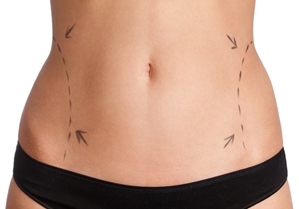 NSW plastic surgery regulations are already the envy of many states in Australia, but new laws have recently passed that will give even more protection to patients going under the knife.
NSW plastic surgery regulations are already the envy of many states in Australia, but new laws have recently passed that will give even more protection to patients going under the knife.
The new legislation would mean anyone caught performing a high-risk procedure in an unlicensed facility could potentially be fined $55,000. Treatments such as breast augmentations are included in the update.
An amendment to the Poisons and Therapeutic Goods Act will also result in cosmetic procedure medications, including dermal fillers and anti-wrinkle injections, having their own classification. The inappropriate storage, access and use of these medicines could see operators slapped with fines of up to $110,00.
Finally, new regulations will govern the practice of extreme body modification, such as tongue-splitting and sub-dermal implants. Non-medical practitioners usually perform these procedures, and they will now face more stringent rules.
Plastic surgery gone wrong spurs legal changes
The previous legislation was reviewed after the death of beauty clinic owner Jean Huang, who died in October last year after going into cardiac arrest during a breast augmentation procedure.
A Chinese doctor, who was allegedly a tourist without the relevant Australian qualifications, performed the treatment alongside a graduate nurse.
“After the death of Jean Huang at a Sydney beauty clinic last year, I directed the Ministry of Health to scrutinise similar clinics and what was found was very concerning,” said NSW Health Minister Brad Hazzard.
“Despite NSW having some of the strongest laws in the country to regulate cosmetic surgery, unsafe practices were taking place and unapproved products being used.”
Mr Hazzard said the new laws would ensure only licensed facilities and medical practitioners should be carrying out risky cosmetic procedures.
Plastic surgeons’ association welcomes amendments
The Australian Society of Plastic Surgeons (ASPS) has described the new legislation as a good start for the industry but claimed more can still be done to improve patient safety.
“With the growing number of people undergoing plastic surgery, we’re seeing an increasing number of injuries, complications and deaths occurring, where procedures are performed by unqualified practitioners in unlicensed premises,” said ASPS President Professor Mark Ashton.
The organisation would like to see the word ‘surgeon’ restricted only to those who have completed specialist surgical training from the Australian Medical Council and are fellows of the Royal Australasian College of Surgeons. At the moment, individuals can promote themselves as cosmetic surgeons without comprehensive training in the field.
Anyone who has experienced plastic surgery gone wrong should contact an experienced medical negligence lawyer to discover whether they are entitled to compensation. Please call Gerard Malouf & Partners Compensation, Medical Negligence & Will Dispute Lawyers on 1800 004 878 today to find out more.

